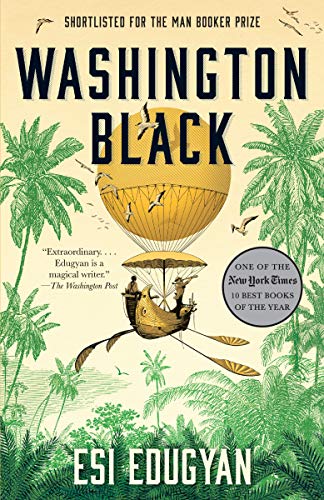Discussion Questions
The New York Times wrote that Esi Edugyan determined that the fate of Washington Black will not be dictated by history, that the novel instead will give him permission to soar above his circumstances and live a life that has been shaped by his imagination, his intelligence and his rich sensibility. He is not a pawn in history so much as a great noticer in time, with astonishing skill at capturing the atmosphere in a room, matched by his talent with pencil and sketchbook. He is a born artist, and someone who attracts people to him. He is also a lost soul who moves through the novel as though in search of some distant, sorrowful notion of home.
Consider the author’s intention as you answer the questions.
In what way is the author’s vision of Washington Black’s journey different from other novels we have read about slavery?
Do you consider Washington Black a coming of age story? If so, when does he cross from innocence to experience?
What role does the balloon explosion and Philip’s suicide play in forming Wash’s sense of self?
How would you characterize the trauma he experienced as a slave to the feelings of abandonment by Titch?
Do you think Wash felt guilty about his separation from Big Kit? Review page 81 as you consider your response.
There are numerous themes in the novel other than slavery. What roles do the themes of science, family, and love play? How do they intersect to support the main theme of the novel?
Wash has a strong sense of empathy? Why is it that he is more kind than bitter? Look at page 293 and his feelings about Willard and Hazzard at the hanging and Wash’s words, “How easy it is, to waste a life.”
How are we to understand Titch at the end?
